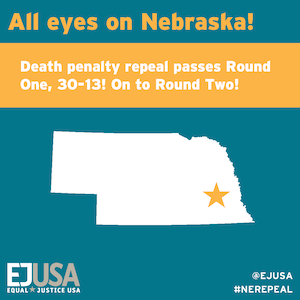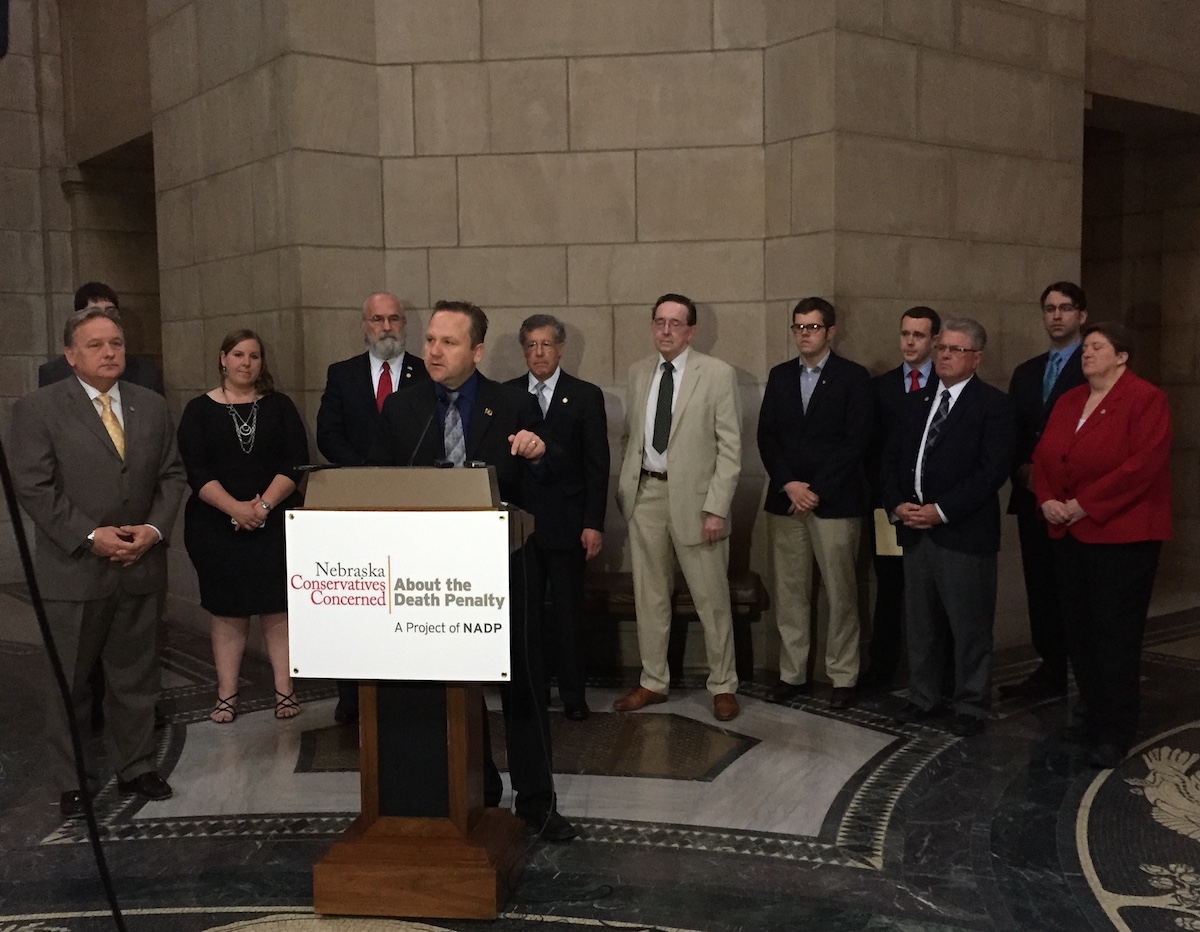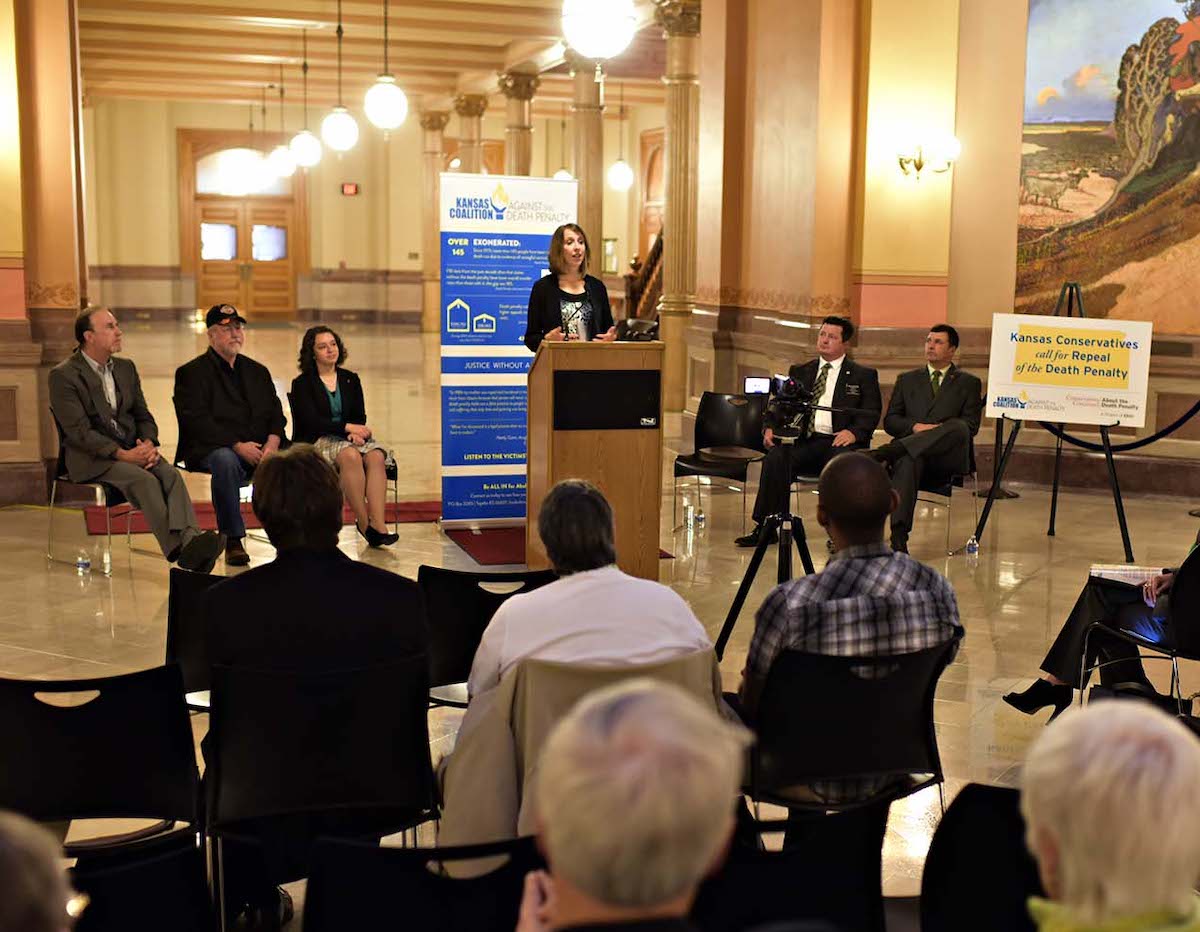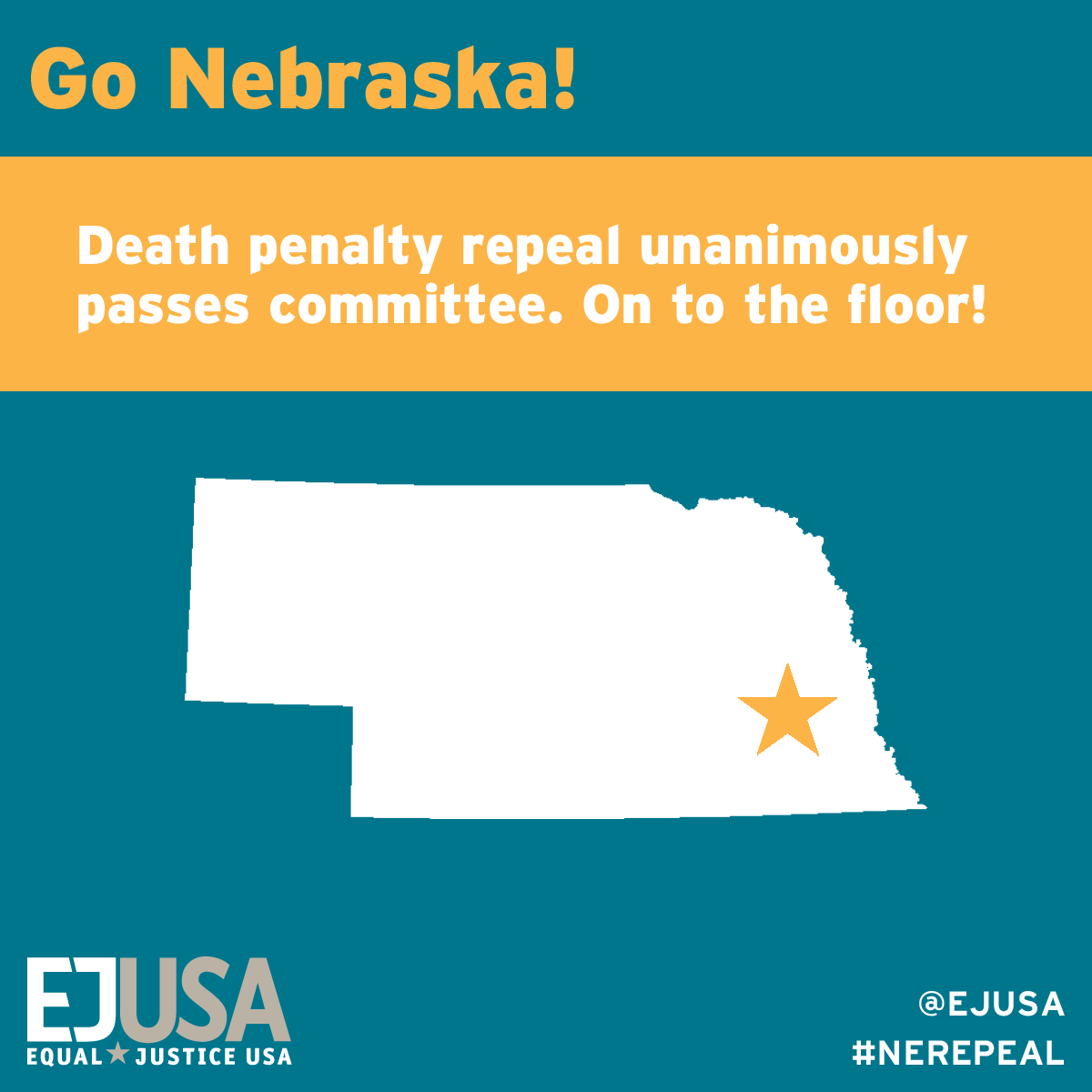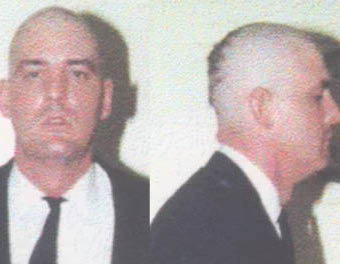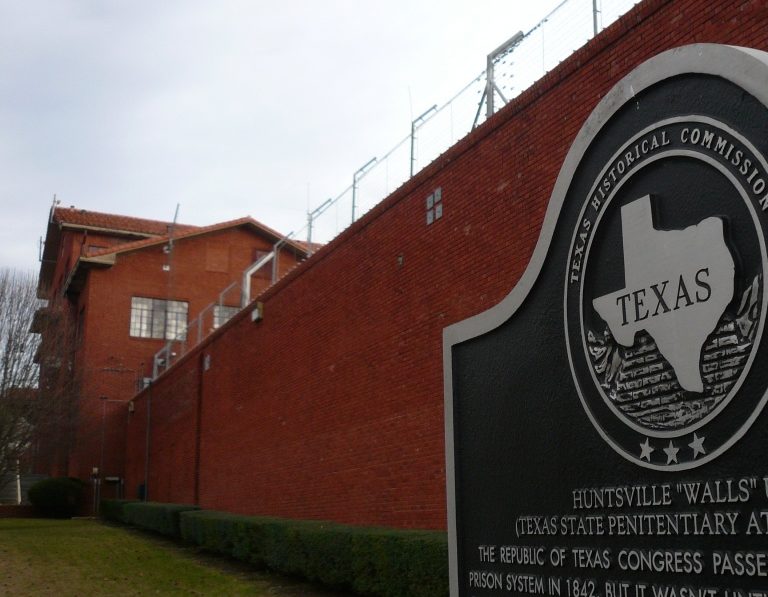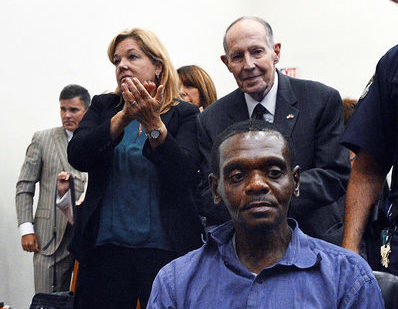
The Nebraska Legislature has voted overwhelmingly – 30-13! – to repeal the death penalty. So why aren’t we celebrating yet?
While the support for repeal in Nebraska is thrilling, the process is rather long and complicated, and there is still much work to be done. We’ve put together this (fairly wonky) primer to help you follow along.
Most importantly, Nebraskans still have time to contact their Senators. Do you live in Nebraska or know someone who does? Visit and/or pass on this link to take action: https://ejusa.org/act/NE
Background
You may remember from your middle school civics class that Nebraska has a Unicameral system – unique in the United States. That means that, unlike every other state and the federal government, there is only one chamber, made up of 49 lawmakers (called Senators).
Also unlike any other state legislature, Nebraska lawmakers are elected into non-partisan positions. While they may be members of a political party, they are not elected with that affiliation, nor do they caucus with other members of their party.
What’s happened so far in the death penalty debate?
Back in March, the Unicameral’s Judiciary Committee held a hearing on Legislative Bill 268 (LB268). Days later, they voted unanimously to advance the bill to General File with an amendment. In other words, they approved the bill to move on to a full debate on the floor of the Legislature with agreement on one set of changes.
On April 16, LB 268 came up for General File – the first round of debate in front of the full Legislature, where a bill can be amended, returned to committee, indefinitely postponed or advanced. After several hours of debate, including consideration of several additional amendments, Senators voted 30-13 to advance the bill to the next phase, including the amendment recommended by the Judiciary Committee.
After the bill passed General File, it made a stop through Enrollment and Review (E&R). This is an administrative stop where legislative staff adds any amendments the Legislature approved, makes adjustments to the format, and reprints the bill in its updated form for the next step.
After E&R, the bill was scheduled for Select File – the second round of debate – on May 15. During Select File, Senators debated for just over four hours, mostly on an amendment that would have replaced the bill with one that would have put the death penalty on the ballot for a vote by Nebraska citizens. The lengthy debate was ultimately deemed a filibuster, so it required a cloture vote in order for debate to cease and a vote to take place. A cloture vote requires 33 votes, and 34 supported cloture on death penalty repeal. After the amendment failed, the repeal bill passed by a vote of 30-16.
After a bill passes Select File, it makes another stop through E&R for any changes (if needed) and gets reprinted for Final Reading.
Final Reading is the last vote the Legislature takes before a bill gets sent to the Governor. Senators are no longer permitted to offer amendments, but motions to send the bill back (to E&R, Select File, or a standing committee) or to delay are allowed. Such motions can be filibustered.
Final reading on LB 268 too place on May 20. Senators debated for just over two hours on a Bracket Motion to delay the bill until 2016. The debate was deemed a filibuster, so it required a cloture vote in order for debate to cease and a vote to take place. After 34 Senators supported cloture, the Bracket Motion failed 14-31. When a final vote was taken on the bill to repeal the death penalty, it passed 32-15.
After a bill passed Final Reading, it went to the Governor’s desk. He had five days (excluding Sundays) to veto, sign, or do nothing and let the bill become law. In a press conference on Tuesday, May 26, Governor Ricketts vetoed LB268, sending it back to the legislature.
The Legislature has five legislative days to override a veto. The override is a Motion on the floor, so members are allowed to debate the Motion according to the rules, but no additional motions or amendments are entertained on the bill. The Override Motion requires 30 votes to pass.
On May 27, after more than 3 hours of debate, the Nebraska legislature voted to override the Governor’s veto by a vote of 30-19.
Still want to know more? You’re a bigger geek than we are! You can check out the Nebraska Legislature’s primer on Lawmaking in Nebraska, their Glossary of terms, or even read the entire Rule Book [pdf].
